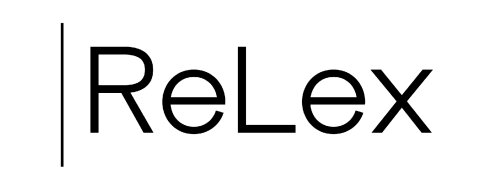Best Brokerage Lawyers in Republic of Lithuania
Share your needs with us, get contacted by law firms.
Free. Takes 2 min.
Free Guide to Hiring a Real Estate Lawyer
Or refine your search by selecting a city:
List of the best lawyers in Republic of Lithuania
About Brokerage Law in Republic of Lithuania:
Brokerage in the Republic of Lithuania refers to the process of intermediating between sellers and buyers of various assets, such as securities or real estate. This can involve facilitating transactions, providing advice, or managing investments on behalf of clients.
Why You May Need a Lawyer:
There are several situations where you may require legal assistance in Brokerage in Lithuania. This includes disputes with brokers, contract negotiations, regulatory compliance, or handling issues related to investments and securities.
Local Laws Overview:
In Lithuania, Brokerage is regulated by the Law on Markets in Financial Instruments. This legislation aims to protect investors, ensure market integrity, and promote transparency in financial markets. It sets out rules for brokerage firms, disclosure requirements, and enforcement mechanisms.
Frequently Asked Questions:
1. What are the licensing requirements for Brokerage firms in Lithuania?
Brokerage firms in Lithuania must obtain a license from the Bank of Lithuania to operate legally. They must also comply with capital requirements, professional standards, and ongoing supervision.
2. How are disputes between clients and brokers resolved in Lithuania?
Disputes between clients and brokers can be resolved through arbitration, mediation, or by filing a complaint with the financial regulator. Clients can also seek legal representation to defend their interests.
3. What are the key obligations of brokers towards their clients in Lithuania?
Brokers in Lithuania have a duty to act in their clients' best interests, provide accurate information, disclose potential conflicts of interest, and execute orders promptly. They must also comply with regulations on client funds protection and privacy.
4. Can foreign investors engage in Brokerage activities in Lithuania?
Foreign investors can engage in Brokerage activities in Lithuania by establishing a local presence or partnering with a licensed brokerage firm. They must comply with local regulations on investor protection, reporting requirements, and tax obligations.
5. What are the penalties for non-compliance with Brokerage laws in Lithuania?
Non-compliance with Brokerage laws in Lithuania can result in fines, license revocation, civil liability, or criminal prosecution. Brokers may also face reputational damage and loss of clients' trust.
6. Do I need a lawyer to invest in securities or real estate in Lithuania?
While legal representation is not mandatory, it can be beneficial when dealing with complex transactions, regulatory issues, or disputes. A lawyer can provide advice, review contracts, negotiate terms, and protect your interests.
7. How can I verify the credentials of a Brokerage firm in Lithuania?
You can verify the credentials of a Brokerage firm in Lithuania by checking the register of licensed entities maintained by the Bank of Lithuania. You can also review their track record, client reviews, and industry reputation.
8. Are there any consumer protection laws that apply to Brokerage services in Lithuania?
Yes, Lithuania has consumer protection laws that apply to Brokerage services. These laws aim to protect investors from unfair practices, misrepresentation, fraud, and misconduct. Clients have the right to seek legal recourse if their rights are violated.
9. What are the key trends and developments in the Brokerage industry in Lithuania?
The Brokerage industry in Lithuania is evolving rapidly due to technological advancements, regulatory changes, market competition, and shifting investor preferences. Firms are focusing on digitalization, innovation, risk management, and compliance to stay competitive.
10. How can I find a reputable lawyer specializing in Brokerage in Lithuania?
You can find a reputable lawyer specializing in Brokerage in Lithuania by asking for recommendations from colleagues, checking online directories, contacting legal associations, or seeking referrals from trusted sources. It is essential to choose a lawyer with experience, expertise, and a good track record in Brokerage law.
Additional Resources:
For more information on Brokerage law in Lithuania, you can visit the Bank of Lithuania website, the Lithuanian Financial Broker Association, or consult legal experts specializing in financial services regulation.
Next Steps:
If you require legal assistance in Brokerage in Lithuania, it is advisable to seek advice from a qualified lawyer with expertise in financial services regulation. They can help you navigate the complex legal landscape, protect your rights, and achieve your objectives in Brokerage transactions.
Lawzana helps you find the best lawyers and law firms in Republic of Lithuania through a curated and pre-screened list of qualified legal professionals. Our platform offers rankings and detailed profiles of attorneys and law firms, allowing you to compare based on practice areas, including Brokerage, experience, and client feedback.
Each profile includes a description of the firm's areas of practice, client reviews, team members and partners, year of establishment, spoken languages, office locations, contact information, social media presence, and any published articles or resources. Most firms on our platform speak English and are experienced in both local and international legal matters.
Get a quote from top-rated law firms in Republic of Lithuania — quickly, securely, and without unnecessary hassle.
Disclaimer:
The information provided on this page is for general informational purposes only and does not constitute legal advice. While we strive to ensure the accuracy and relevance of the content, legal information may change over time, and interpretations of the law can vary. You should always consult with a qualified legal professional for advice specific to your situation.
We disclaim all liability for actions taken or not taken based on the content of this page. If you believe any information is incorrect or outdated, please contact us, and we will review and update it where appropriate.
Browse brokerage law firms by city in Republic of Lithuania
Refine your search by selecting a city.















